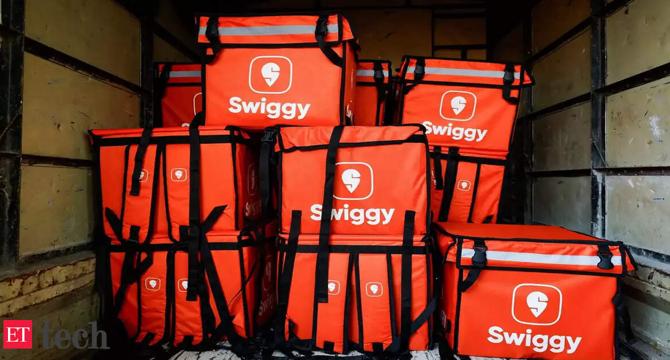Economic Times
3w
105

Image Credit: Economic Times
Swiggy GOV growth came at the cost of profitability: Prosus
- Swiggy managed to grow its business and reduce operational losses in 2024 but faced profitability challenges, according to early investor Prosus.
- The company saw a 29% year-on-year growth in gross order value (GOV) and a decrease in adjusted EBITDA loss.
- Growth was driven by food delivery and quick commerce expansion, leading to heightened competition.
- Swiggy's quick commerce arm, Instamart, expanded by adding 316 dark stores during the March quarter.
- In comparison, Zomato's Blinkit added 294 dark stores during the same period.
- March quarter results showed GOV growth with food delivery up by 18% and quick commerce by 101% year-on-year.
- Food delivery segment improved with an adjusted EBITDA margin over GMV of 2.9% by March 2025.
- Quick commerce, however, saw increased investments with an adjusted EBITDA margin over GMV declining to -18%.
- Swiggy aims for contribution breakeven in the quick commerce segment in the next 3 to 5 quarters.
- Balancing growth and cost management remains a challenge for Swiggy in the competitive quick commerce space.
- Morgan Stanley believes Swiggy can withstand quick commerce competition due to its financial strength.
- Prosus, an early investor in Swiggy, holds a 24.8% stake in the company after reducing its ownership post the listing.
- Swiggy's expansion into the travel and lifestyle concierge app, Crew, showcases its diversified efforts.
- The challenge for Swiggy lies in managing growth while ensuring sustainable cost control amidst competition.
- Swiggy's robust financials in food delivery provide support for continued investments in quick commerce.
- Prosus remains a significant investor in Swiggy, with a strategic stake in the company since 2017.
Read Full Article
6 Likes
For uninterrupted reading, download the app